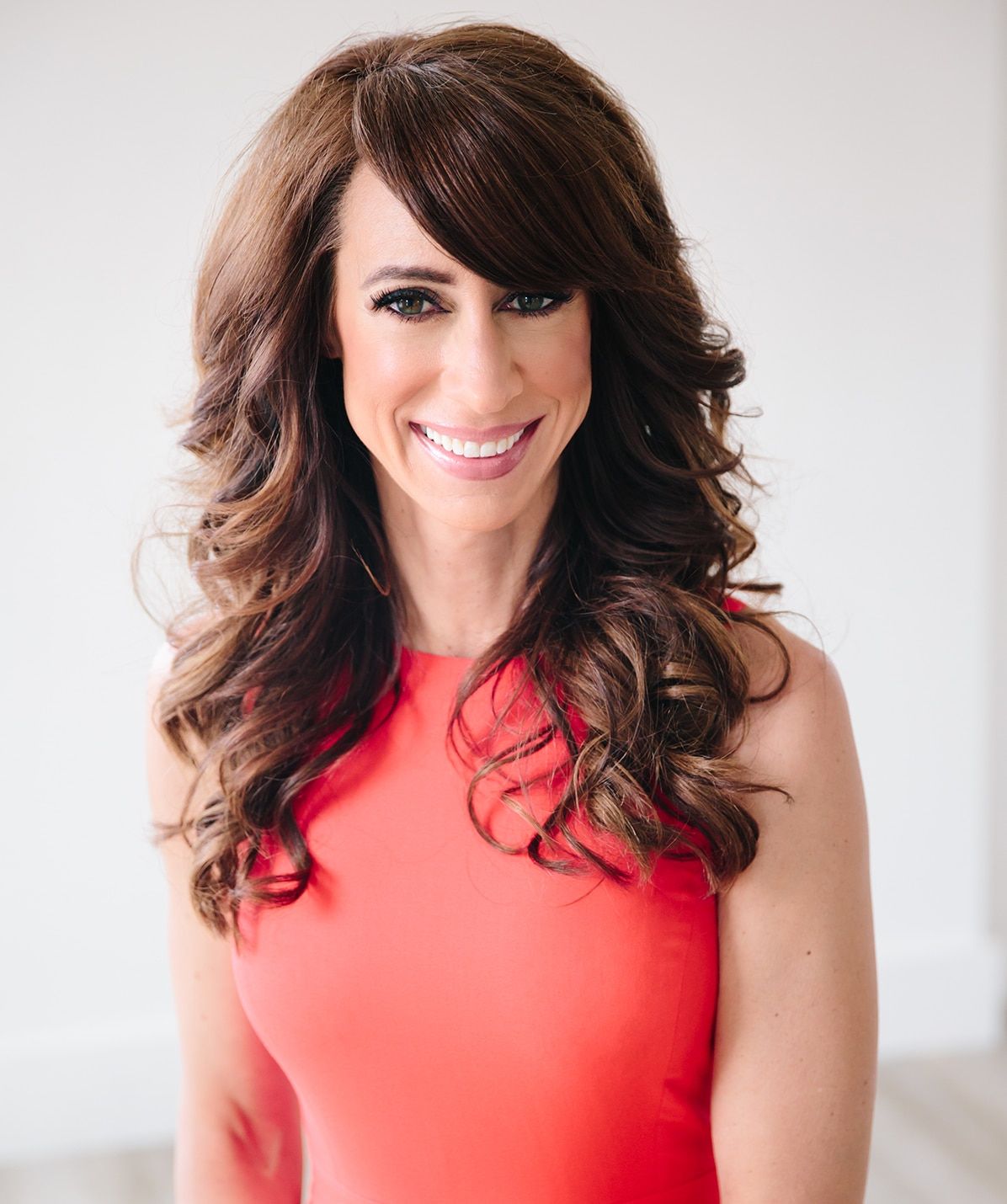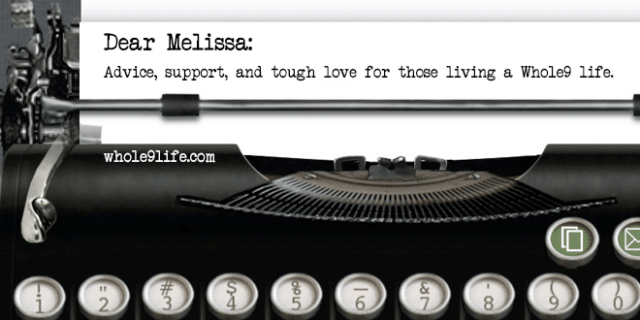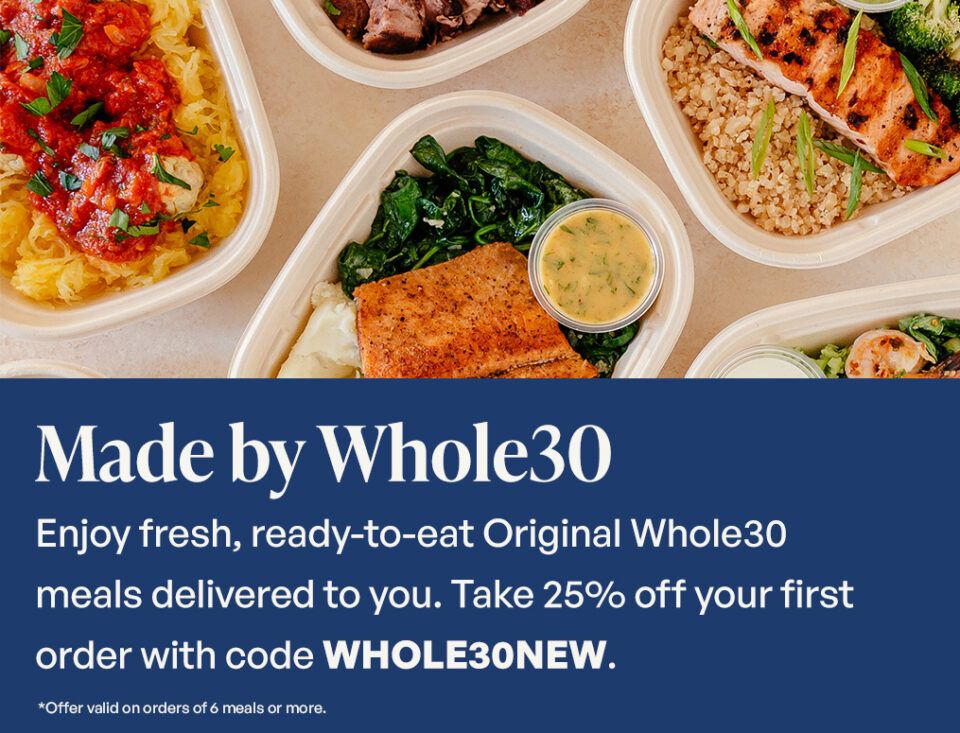Welcome to Dear Melissa, where I answer your questions about transitioning into or completing a Whole30, successfully sticking to your new Food Freedom habits, and figuring out how to make this lifestyle work in the real world. Today, we’re talking about dealing with a weight loss stall post-Whole30. A note on this one: upon first glance, you may think today’s column is about offering Terri weight loss advice, but you should know by now that is not what we do around here. My intention is instead to help Terri get out of the weight loss mentality, because it’s part of what is halting her physical, psychological, and emotional health progress. Please, take this concept to heart. There are so many reasons to ditch your scale and focus on all the other areas of health that a diet and lifestyle shift like the Whole30 can influence.
Dear Melissa, I completed a Whole60 in October and lost 24 pounds, but my weight loss has stalled, and I really have more weight to lose. One thing I’ve noticed is the satisfied feeling and lack of cravings after meals are different now than they used to be. I’m still eating Whole30 meals, but find myself hungry in between meals and tempted with quick snacks like M&Ms in my coworker’s office. Before, I had no need and no temptations. Is this just part of continuing after the first natural adjustment to the plan? –Terri R., Charlotte, NC Dear Terri, When you switch from a Standard American Diet (even a “healthy” one) to a Whole30, you’re introducing foods with micronutrition, complete protein, healthy fats, fiber, and water; all factors that add up to feeling really satisfied after a meal. For some, this feeling of satiety is so new and different from what you are used to that you may have a hard time eating three meals a day for the first week or two. Over time, your body will get used to eating foods with brakes, and that may be what you are experiencing—before, you felt stuffed after meals, and now you’ve grown accustomed to (and your body has gotten better at) eating and digesting nutrient-dense food. However, I’m guessing that something else is happening here: your body has changed tremendously since October, but your Whole30 eating plan has not. One of the most common beliefs that holds us back from making health and fitness progress is that if something worked for a while, we just need to keep on doing that exact same thing forever and ever and it will continue to work. Even more dangerous, when it stops working so well (because it will), we then decide that we just need to do even more of that same behavior—more restrictive (foods or calories), more intensity or volume (exercise), more dedication and vigilance on all fronts. This belief gets us into trouble every. Single. Time. First, your body isn’t the same as it was in October, when you initially crafted your Whole30 eating plan. You’ve lost 24 pounds! Your metabolism is more fine-tuned, your hormones are talking to your brain more effectively, your gut is healthier, and your immune system is calmer. So what makes you think that the same exact meals that worked for you back in October are still perfect for you now? In addition, you mentioned a few times in your original note (which we edited for length) that you were hoping to lose more weight. So I’ll bet you all the money in my pocket that you’ve not just kept the same Whole30 meals, you’ve probably cut back just a little. A little less fat. Fewer snacks, even if you are hungry. Smaller meals in general. Because this worked for you once, but it’s “not working” anymore (from a strictly weight-loss perspective), so it’s time to do more. Which, when it comes to that old diet mindset, actually means less. Herein lies the problem: I’m betting that you are under-fueled. Your hunger between meals and cravings are a huge confirmation of that hypothesis, but here are some other questions to ask yourself: How’s your energy? Still high and consistent, or starting to lag? How’s your exercise performance, or your motivation to exercise? Are you still sleeping as well? Is your mood still confident and happy? What I’m trying to say is let’s take the focus off weight loss again. Because that’s just one symptom of what’s going on here, and I bet if you take a good, hard look at other areas of your life, you’ll see there is more than just weight loss progress that has stalled or declined. The good news is that if I’m right, this is an easy fix. Eat more. You don’t have to double your protein or fat right off the bat, but make every meal a little bit bigger for a week and see if that helps. Slightly more protein (try three eggs instead of two for breakfast), slightly more fat (try an extra tablespoon of ghee or a handful of olives on the side), and at least the same amount of healthy veggies. (If you’re already filling your plate, you’re in pretty good shape there.) Don’t be afraid of carbohydrates, either! You’d be surprised how satiating half a sweet potato with some ghee can be, and you may benefit from a little extra energy here. Then, evaluate—but stay off the scale. For the whole week. Yes, we’re going back to that rule. I want you to focus on all of the other factors that can clue you in as to whether you’re really giving your body what it needs. And it’s impossible to listen when your scale is being a jerk. NOW how’s your hunger? How are your cravings? How about energy, mood, self-confidence, sleep, athletic performance, recovery? If all of those things improve, you are on the right track. But now more than ever, I still don’t want you getting on the scale. Let’s get you back to the place where you are focusing on all of the other factors that improve when you fuel your body the way it needs to be fueled. Let’s reduce your stress, because wanting to lose weight and not losing weight is pretty darn stressful—which actually makes it harder to lose weight. Let’s just let all of that go for a while, embracing the Whole30’s “no scale” rule and give yourself a much-deserved break from the preoccupation with weight loss and how your body looks. Literally, I want you to say this out loud: I give myself permission to stop thinking about my body and weight loss. I’d be shocked if this plan didn’t get you moving in the right direction again, from an overall health perspective. And once that happens, healthy, sustainable weight loss is a natural side effect, no stress, restriction, or obsession required. All the wins. Best in heath, Melissa
Got a question for Melissa? Submit it using this handy form.
Remember, we aren’t answering questions about the Whole30 rules via this column (use the forum!), nor are we able to offer you specific advice about your medical issue, health condition, or body composition.  Melissa Urban is the Whole30 co-founder and CEO, and a 6-time New York Times best-selling author, including the #1 best-seller The Whole30: The 30-Day Guide to Total Health and Food Freedom. She has been featured in the Wall Street Journal, New York Times, People, CNBC, SELF, and Shape. Melissa lives in Salt Lake City, UT. Photo credit: Marie Carmel
Melissa Urban is the Whole30 co-founder and CEO, and a 6-time New York Times best-selling author, including the #1 best-seller The Whole30: The 30-Day Guide to Total Health and Food Freedom. She has been featured in the Wall Street Journal, New York Times, People, CNBC, SELF, and Shape. Melissa lives in Salt Lake City, UT. Photo credit: Marie Carmel






